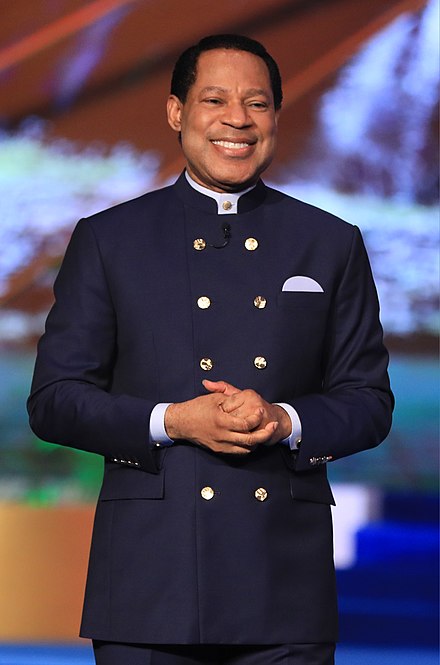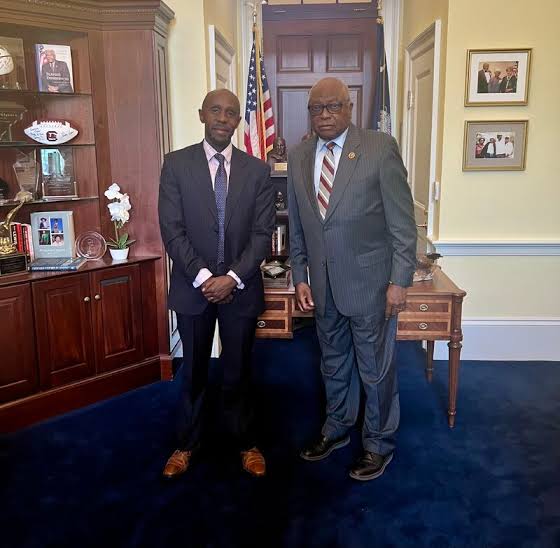Anthony Olubunmi Okogie
His Eminence Anthony Olubunmi Okogie
Position: Cardinal, Archbishop Emeritus of Lagos.
Number of Views: 5,115 Views
Country: Nigeria
Category: Religious Leaders
Place of Birth: Lagos State, Nigeria.
Date of Birth: Jun
16 1936
Education
Bio Description
Anthony Olubunmi Okogie (born 16 June 1936[1]) is a Nigerian Cardinal Priest and Archbishop Emeritus of Lagos in the Roman Catholic Church.[2]
Biography
Born in Lagos, Nigeria, Okogie was born to a royal family of Uromi in Edo State. His parents were Prince Michael Okojie - who was himself a son of King Ogbidi Okojie of Uromi - and Lucy Adunni Okojie (nιe Afolabi).[3] His father was Esan and his mother was Yoruba. Okogie was ordained priest on 11 December 1966. He holds a licentiate in sacred theology, and had planned to study in Rome, but was called to Nigeria where he was a curate at the Holy Cross Cathedral. He was drafted into the Nigerian army, and served there as a chaplain. After another period of service at Holy Cross Cathedral, he was an instructor at King's College.
In 1971, he was consecrated Titular Bishop of Mascula and Auxiliary of Oyo, and in 1973 named archbishop. As archbishop, Okogie was president of the Christian Association of Nigeria, and from 1994 to 2000 headed the Bishops' Conference of Nigeria.
Cardinal Okogie volunteered to die in place of a Muslim woman who had been condemned to death by stoning by an Islamic court for adultery.[4]
He was proclaimed Cardinal by Pope John Paul II in the consistory of 21 October 2003, and holds the title of Cardinal Priest of Santa Maria del Monte Carmelo a Mostacciano (or in English Blessed Virgin Mary of Mt. Carmel of Mostacciano). During his cardinalate, Okogie was one of the cardinal electors who participated in the 2005 papal conclave that selected Pope Benedict XVI.[5] Cardinal Okogie was also one of the cardinal electors who participated in the 2013 papal conclave that elected Pope Francis.[6][7][8] During the opening day of the 2013 conclave, Cardinal Okogie was notable in that he was the one cardinal who was in a wheelchair during most of the proceedings, standing up only when it came time for him to walk towards the gospels and make the cardinal electors' oath.[6] During the procession and entry into conclave, Cardinal Okogie was the one cardinal from the Latin church who did not wear the mozzetta.[6]
His resignation from the pastoral governance of the see of Lagos because of having reached the age limit of 75 years was accepted on 25 May 2012.
Views
Condoms
In 2007, he condemned the government approval of a condom factory.[9]
Celibacy
Cardinal Okogie has defended the Catholic Church's laws on celibacy for Catholic priests.[10]
American culture
Okogie has been critical of American culture, especially as it relates to priestly vocations. He said "those people there, in the US, they dont value anything any more. And how do you want priests to come from a place like that?[10]
References
- ^ "Lifetime achievers Anthony Cardinal Okogie: Friend of the helpless". Vanguard News. 31 December 2016. Retrieved 17 March 2022.
- ^ "OKOGIE Card. Anthony Olubunmi". press.vatican.va. Retrieved 29 January 2023.
- ^ Tomori, Pascal (1991). Anthony Olubunmi Okogie: The People's Bishop. Nigeria: Jeromelaiho & Associates. p. 63.
- ^ Obed Minchakpu (1 February 2002). "Archbishop Proposes to Die in Place of Woman Sentenced to Stoning". Christianity Today. Retrieved 22 February 2013.
- ^ "The Cardinals of the Holy Roman Church: Conclaves of the 21st Century (2005)". Salvador Miranda. Archived from the original on 24 December 2017. Retrieved 6 September 2013.
- ^ a b c Procession and entrance in Conclave (Television production) (in Italian). Rome: Centro Televisivo Vaticano. 12 March 2013. Retrieved 9 April 2013.
- ^ "Cardinal electors Conclave of March 2013 Arranged in alphabetical order". Salvador Miranda. Retrieved 18 February 2013.
- ^ "Conclave of March 2013". Salvador Miranda. Archived from the original on 24 December 2017. Retrieved 1 November 2013.
- ^ Peter Ajayi Dada (4 January 2007). "Nigerian cardinal condemns government approval of condom factory". Catholic News Service. Archived from the original on 9 January 2007. Retrieved 22 February 2013.
- ^ a b Chioma Gabriel, Sam Eyoboka (24 July 2009). "I had three girlfriends, I still have sexual urge". Vanguard. Retrieved 22 February 2013.
External links
- "Okogie Card. Anthony Olubunmi". Holy See Press Office. Archived from the original on 4 September 2017. Retrieved 26 November 2017.
- Biography, catholic-pages.com. Accessed 12 March 2024.






